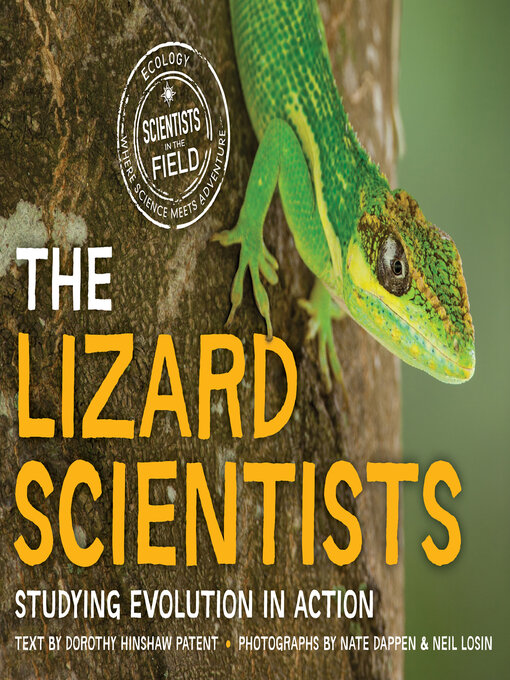In this groundbreaking, exceptionally researched installment of the award-winning Scientists in the Field series, discover how lizards rapidly adapt to life in the Caribbean islands, allowing scientists to study Charles Darwin's theory of evolution by natural selection in real time.
Award-winning author Dorothy Hinshaw Patent joins forces with scientists/filmmakers Neil Losin and Nate Dappen, whose work is detailed in the Smithsonian Channel documentary "Laws of the Lizard," to explore how the small but mighty lizards we call "anoles" are used by scientists to study basic principles of evolution and ecology.
Travel with the team to Florida and the Caribbean as they research how anoles followed similar but independent evolutionary paths on the four major islands of the Greater Antilles (Puerto Rico, Hispaniola, Jamaica, and Cuba). So while anoles on different islands may look like close relatives, they often are not! This is Darwin's principle of natural selection at work.
And it makes anoles the perfect subjects for experiments that study how animals adapt to new challenges—such as climate change—in this exciting and timely addition to a celebrated series.



